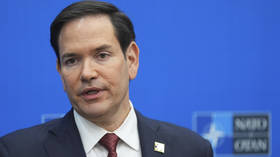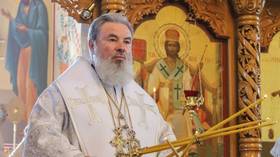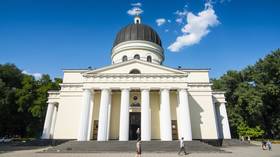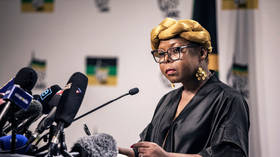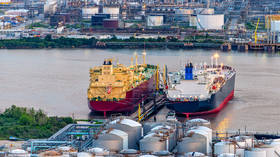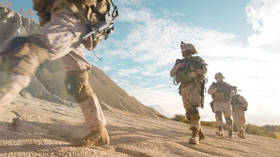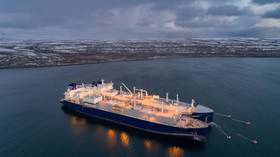Apollo 11 astronaut Michael Collins, 90, dies after battle with cancer
Astronaut Michael Collins, who flew the command module on the 1969 Apollo 11 mission that saw the first men land on the moon, has passed away from cancer, his family said in a statement.
“He spent his final days peacefully, with his family by his side,” they said on Wednesday, noting that Collins faced his final challenge “with grace and humility,” just as he had the other challenges of his life.
“Please join us in fondly and joyfully remembering his sharp wit, his quiet sense of purpose, and his wise perspective, gained both from looking back at Earth from the vantage of space and gazing across calm waters from the deck of his fishing boat,” the Collins family added, requesting privacy during their time of mourning.
Family Statement on Passing of Astronaut Michael Collins pic.twitter.com/6OAw7CzFaz
— Michael Collins (@AstroMCollins) April 28, 2021
Collins piloted the ‘Columbia’ command module, which orbited the moon his colleagues Neil Armstrong and Edwin ‘Buzz’ Aldrin made the first human landing on the lunar surface in July 1969. He orbited the moon 30 times in what was his second space mission – the first being on board Gemini 10 in 1966. Collins was the third American to perform a spacewalk, and the first astronaut to go out into the vacuum more than once.
I am certain, if everyone could see the Earth floating just outside their windows, every day would be #EarthDay.There are few things more fragile or more beautiful than Earth, let’s work together today and everyday to protect our home. pic.twitter.com/XJO3RSJczw
— Michael Collins (@AstroMCollins) April 22, 2021
After retiring from NASA in 1970, Collins briefly served at the State Department as assistant secretary of state for public affairs, before resigning to run the National Air and Space Museum. He stayed with the Smithsonian until 1980, when he went into the aerospace industry.
Collins retired from the US Air Force Reserves in 1982 with the rank of major general.
The US space agency said the country had “lost a true pioneer and lifelong advocate for exploration” with the passing of Collins, whom acting administrator Steve Jurczyk described as a “tireless promoter of space.”
We mourn the passing of Apollo 11 astronaut Michael Collins, who piloted humanity’s first voyage to the surface of another world. An advocate for exploration, @AstroMCollins inspired generations and his legacy propels us further into the cosmos: https://t.co/47by569R56pic.twitter.com/rKMxdTIYYm
— NASA (@NASA) April 28, 2021
“Whether his work was behind the scenes or on full view, his legacy will always be as one of the leaders who took America's first steps into the cosmos. And his spirit will go with us as we venture toward farther horizons,” Jurczyk said in his tribute to the late astronaut.
Think your friends would be interested? Share this story!



